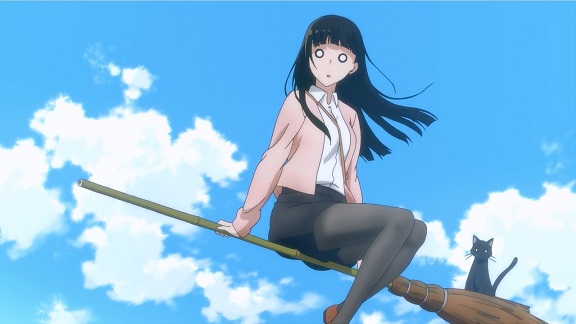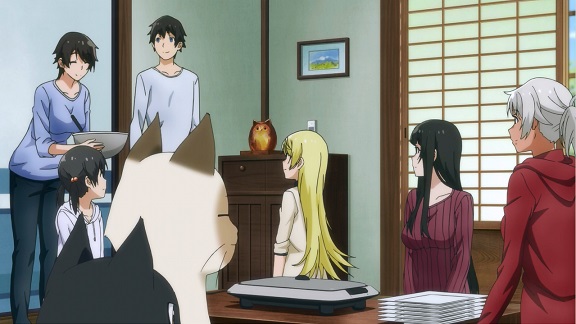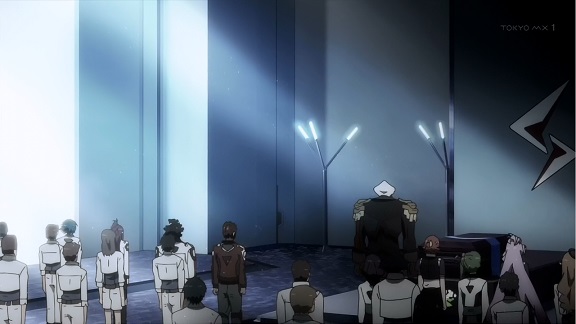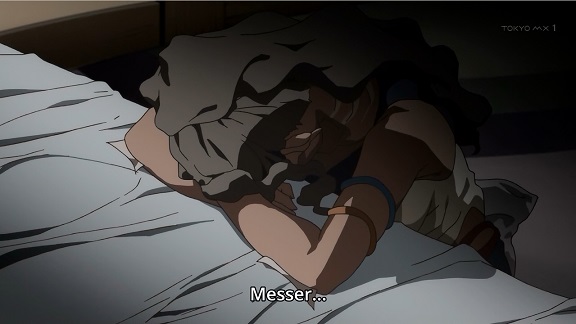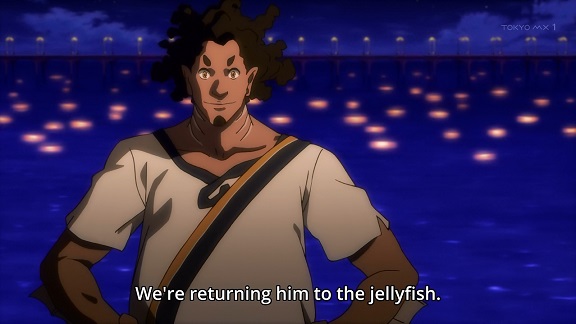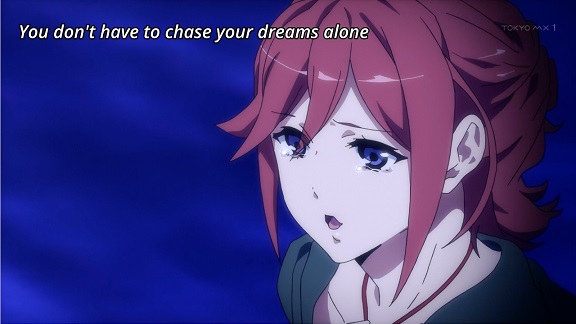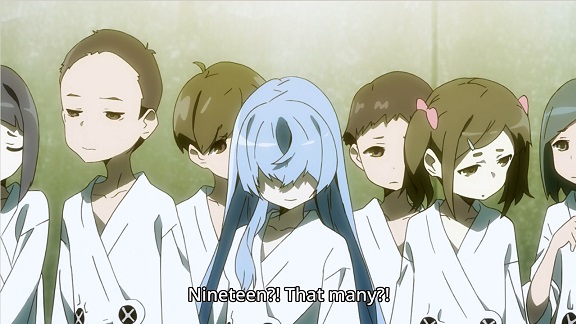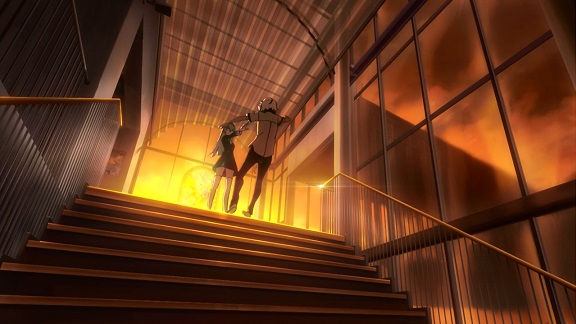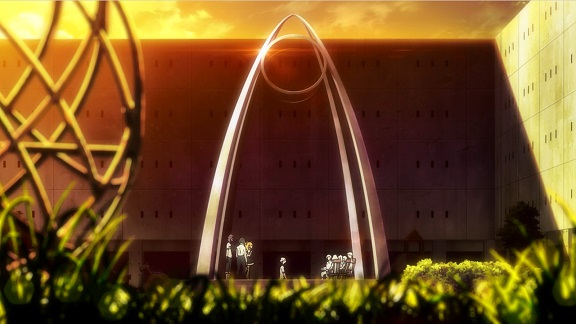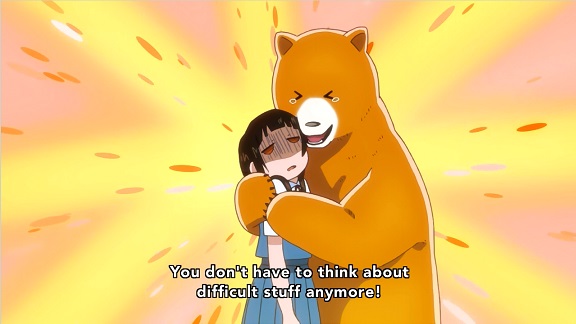
Kuma Miko was billed as a light hearted, cute comedy about Machi, a middle school priestess of a tiny little village out in the sticks and Natsu, her bear guardian/god of the temple she leads, as she wanted to start high school in the big city and he was doubtful about whether she was up to it. From the start there were hints of something nasty lurking in the show’s background: Machi was less of a protagonist and more of an object of suffering as Natsu sets her challenges while her uncle Yoshio ropes her into his schemes to revitalise the village. In the process what looked first like a typical anime foible turned into something more serious as it becomes clear Machi suffers from some sort of social anxiety disorder, not being able to cope well with anybody from outside her tiny and aged village. It all felt mean spirited as none of the adults in the series seemed to either take Machi or her obvious issues serious.
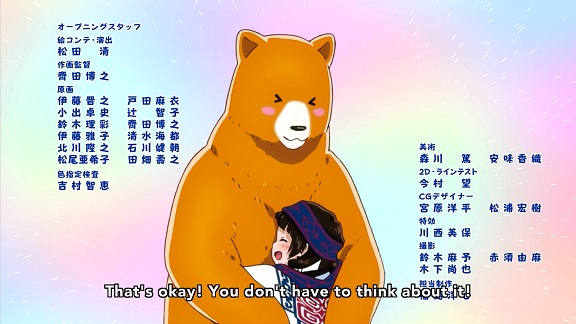
It all came to a head in the series final. Episode eleven saw Machi entered into a local idol competition in Sendai, freak out and run away. You’d expect that the final episode would feature some sort of resolution, as everybody comes together and give Machi the strength to overcome her fears. Not the most original of endings perhaps, but it would’ve been decent enough. Instead we got Machi fleeing back home after she made her comeback to the stage and everybody delighted she did so. Ibless, among others, thinks this was a deliberate sendup on the part of the anime team:
from whatever motivation, the anime staff decided to manifest a certain perceived subtext within the original manga and highlight it through the show in a subtly deconstructive way designed to examine the disturbing implications of the source material’s setting.
I’m not so sure. It might’ve been deliberate satire, a rejection of the conservative and somewhat vile subtext in the original manga, but I never quite got the impression the animators disapproved of this subtext, unlike frex this Twitterer. Rather, it comes over a cackhanded attempt to craft an original ending to the series that re-established the status quo in the spirit of the manga. And even had it been intended to mock, Poe’s Law comes into effect, as clearly a lot of people including me did take it at face value rather than as satire. Moreso because its ideology isn’t that far removed from other anime series, just more open. That idea that community is more important than your own personal wishes, that girls especially are just happier and better off staying home, that’s not that far from the surface of other slice of life series. It’s just that Kuma Miko is especially nasty about it.
